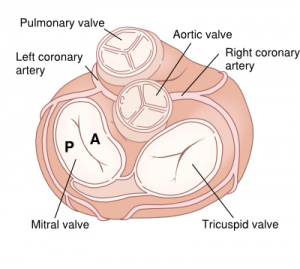 A common condition
A common condition
There are a number of different diseases of the heart valves but Mitral Valve Prolapse is one of the most prevalent and I will concentrate on this particular condition.
It is not unusual for a doctor to inform you that you have a heart murmur. It is probably more common when you take your dog to the vet and he notices a heart murmur when testing the dog’s heart with a stethoscope. Your vet will also advise to just keep an eye on a mild condition rather than medicate.
What is a heart murmur?
What is a heart murmur? A heart murmur is what a doctor or vet can hear when listening for unusual sounds between heartbeats. The medic will hear a whooshing or swishing sound, a sure sign of a murmur. Although you may be alarmed if your doctor informs you of this condition, most heart murmurs are nothing to worry about but they can indicate an underlying problem that should be addressed. The cause of the murmur is the mitral valve not closing properly. Sometimes blood can regurgitate back into the left atrium and your doctor may hear that process with his stethoscope, which picks up the sound between heartbeats.
Alternative names
Other names for this condition are: Systolic click-murmur syndrome, floppy mitral valve, myxomatous mitral valve, prolapsing mitral leaflet syndrome, barlow syndrome and billowing mitral valve.
And the treatment?
There is not an obvious treatment for a mild case of this condition but most likely you will be offered a number of medications which doctors will hand out to the worried patient. I had a quick look on the web and found a list of 19 drugs for MVP, the most common are:
- beta-blockers such as atenolol (Tenormin).
- Metoprolol (Lopressor).
- Propranolol (Inderal)
These drugs will, of course, have side effects as all drugs do and if the condition is mild and not causing any problems for the patient, I can’t see any reason for prescribing them. What I would recommend though is to take a good quality magnesium supplement.
Magnesium?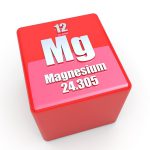
There are many implicated reasons for a heart murmur but for some reason, one of the most common is overlooked by most doctors. It doesn’t seem to occur to them to check for a magnesium deficiency which has been associated with mitral valve prolapse (MVP). Mind you, using the antequated total serum magnesium test is no help and the common false results can throw a doctor off the track of magnesium deficiency.
Is it hereditary?
Although it is deemed that mitral valve prolapse is likely to be hereditary, it can be brought about by the aging process. If this is the case, then there is a likelihood that calcification could be the cause. If excess calcium is in the system then it can calcify in any part of the body and cause problems. Calcium can be toxic if taken to excess or if the body is deficient in magnesium which actually controls calcium and keeps it out of the cells. If calcium is allowed into the cells because of the lack of magnesium then it will cause cell death and inflammation. The lack of magnesium allows excess calcium to roam the body in its non-ionic state and settle anywhere in the soft tissue.
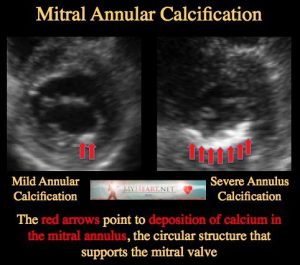 Mitral annular calcification (MAC)
Mitral annular calcification (MAC)
Known as MAC, mitral annular calcification is a degenerative process of the mitral valve ring and was first described by Bonninger in 1908. It is expected that older people will have some calcification in the cardiovascular system and this has been proven at autopsy.
Previously, it was thought that this condition was a consequence of rheumatic fever but evidence of previous disease has often been absent and now it is regarded as the end stage of an inflammatory process. The same inflammatory process which blights those suffering atherosclerosis. In fact, the presence of MAC can be an indication of the incidence of cardiovascular disease. There is no knowing where calcium will settle. The only issue is will it settle and damage those areas of the body which could lead to life threatening diseases.
Not life threatening but…
When any part of the mitral valve gets thickened with inflammation and/or calcium deposits, mitral valve prolapse can occur compromising the movement of the valve. This is the most common cause of mitral regurgitation where some blood flows backwards into the left atrium with each heartbeat. Some patients will experience chest pain which is quite worrying and frightening for them. Although an MVP that causes minor symptoms is not dangerous in itself, if calcification is the cause, it can be an indication that other parts of the body may have calcium deposits too. These calcifications will also come with inflammation, which has now been proven to be one of the biggest causes of disease.
 An experts view
An experts view
Dr Melvyn Werbach, who wrote Nutritional Influences on Disease states that MVP is overdiagnosed and maintains that the condition is a magnesium deficiency disease. This can be treated naturally with a change in diet and a good quality magnesium supplement.
It is interesting to note that the heart needs the most amount of magnesium specifically in the left ventrical where the mitral valve is situated. Without enough magnesium the heart and the cardiovascular system cannot function properly. The valves of the heart are held tightly by muscles which, like all muscles in the body, depend on an adequate supply of magnesium to work. If calcium is in excess relative to magnesium then the muscles can go into spasm.
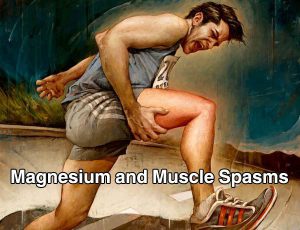 What is a spasm?
What is a spasm?
A muscle spasm is caused when the muscle cannot relax. Calcium causes muscles to contract and magnesium causes them to relax. When magnesium is low, the muscle can go into spasm, contracting but not relaxing. Spasms such as is caused by a magnesium deficiency can cause a serious heart event and even sudden death. Even very fit people such as athletes have been known to drop dead because of excessive exercise, sweating and loss of magnesium to dangerous levels, causing the heart to go into spasm. This is also what happens when you get cramp. It can affect any muscle in the body.
Mitral valve disease prescribed drugs
If you have a heart murmur or mitral valve prolapse, far be it for me to persuade you to wean yourself of any drugs your doctor has prescribed for you. You may like to know though, that the drugs your medic has likely prescribed will have some serious side effects. Such as:
- Beta-blockers – Side Effects
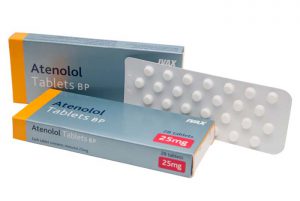
- dizziness.
- tiredness.
- blurred vision.
- cold hands and feet.
- slow heartbeat.
- diarrhoea and nausea.
- Metaprolol – Side Effects
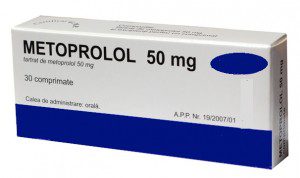
- Dizziness or lightheadedness.
- Tiredness.
- Depression.
- Nausea.
- Dry mouth.
- Stomach pain.
- Vomiting.
- Gas or bloating.
- Propranolol – Side Effects
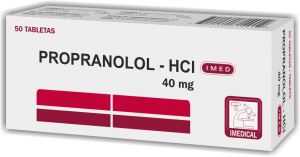
- nausea, vomiting, diarrhea, constipation, stomach cramps;
- decreased sex drive, impotence, or difficulty having an orgasm;
- sleep problems (insomnia); or.
- tired feeling.
What are beta blockers?
Beta blockers work by blocking the effects of the hormone epinephrine, also known as adrenaline. Magnesium is the calming, relaxing and de-stressing mineral which does exactly the same thing as beta-blockers, but naturally with no side effects. We need epinephrine/adrenaline, that’s why we have it in our bodies. Why would we want to block it? These drugs are also used for reducing blood pressure and slowing the hearbeat. Surprise, surprise! Magnesium reduces blood pressure and naturally reduces your hearbeat! Well I never!
 What can you do?
What can you do?There has been some groundbreaking research into calcification in the soft tissue and it has been shown that vitamin K2 particularly menaquinone 7 actually helps to put calcium back into the bones where it belongs. This along with a good quality magnesium supplement such as Dr Dean’s ReMag is a good way of repleting your magnesium levels. Most people are deficient in magnesium nowadays because magnesium is depleted from our soils due to modern agricultural practices. Myself and hubby take vitamin K2 every day to help usher calcium out of soft tissue and into the bones. This article will give you all the details of this little known vitamin
Keep Ca and Mg in equilibrium
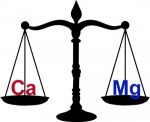
Please remember to aim for equal calcium and magnesium intake. If these two minerals are kept in balance your health will benefit remarkably. If calcium is consumed excessively, as is so often the case with calcium everywhere
 in our diet and over the counter drugs such as ‘tums’, you will be magnesium deficient by default. Check out the short video at the top of this page.
in our diet and over the counter drugs such as ‘tums’, you will be magnesium deficient by default. Check out the short video at the top of this page.Also be aware that calcium supplements, which are mostly just chalk, are hardly ever necessary and can do more harm than good. Taking calcium without magnesium is not a good idea.
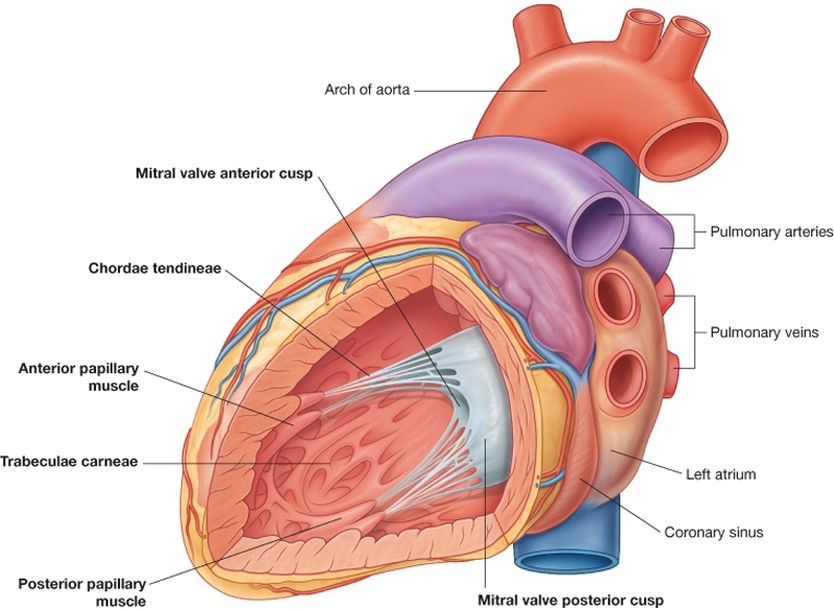
Hi,
What about Magnesium Threonate?
Mg Threonate has a molecular weight of 294.5. The molecular formula involves 14 hydrogen atoms, 10 Oxygen atoms and 8 Carbon atoms but just 1 Mg atom. This means for each molecule of Mg Threonate of 294.5, only 24.3 is elemental Mg. Most other Mg supplements are less complex, so you get more elemental Mg in them. This article will explain in more detail. Apart from that, the relative complexity of the Mg Threonate formula will impact on its bioavailability against other formulas such as Mg Chloride. The Stability Constant Value (SCV) of Mg Chloride is zero which means it is the most bioavailable; the lower the number the better. I have never found the SCV for Mg Threonate but presume that because of its more complex formula, it would be difficult to achieve zero. Liposomal Mg L-Threonate may be the exception but this is so exorbitantly expensive that most wouldn’t be able to afford it (£70+ for 15 days supply for Altrient).
Useful post Ches, thanks. Don’t necessarily agree that MVP is a magnesium deficiency disease, but magnesium can help to relieve the symptoms of mitral valve prolapse. At least, that seems to be the consensus among medical experts and people living with the condition. A lot of our readers report feeling better on magnesium supplements.
Hi there and thanks for the comment. Many diseases can be brought about by a Mg deficiency including MVP. Recent research regarding K2(MK7) along with vitamin D3 (particularly for those low on sunshine), as well as a good quality Mg supplement actually reduces calcification. Vitamin K2 benefits – avoiding calcification It is definitely worth taking these 3 supplements together. As for vitamin K2, so far it has not shown any side effects, so you can’t overdose on it. However, you do have to watch your vitamin D3 intake as is explained in the above link.
I’ve been taking beta blockers for more than 2 years after being diagnosed. I still fee some symptoms every now and then. But overall, I’m feeling much better than before I took beta blocker.
Thanks for your comment and I’m pleased you’re feeling much better. Please remember to keep your magnesium levels up to counteract the depletion of magnesium which happens when taking nearly all drugs, beta blockers included. This will help you feel even better than you do now!
Thank you for your very informative article, I found it so upsetting when doctors just subscribe unnecessary medication to their patients that can cause serious side effects when something like supplement as magnesium or vitamins can do the job. I am so thankful for people like you who take the time to inform readers about this. Magnesium seems to be one of those miracle minerals that can help with so many different health issues.
Hi Gabby, you are so right about magnesium being a miracle mineral. Up to now, the count is nearly 800 enzymes that need magnesium to function. This explains why we can come down with so many diseases and conditions just from a magnesium deficiency. Our 37+ trillion cells all need magnesium in abundance to function properly. It truly is the star nutrient IMHO. Thanks for your input and good health to you and yours. Ches
It is quite a revealing that Heart murmur has something to do with magnesium deficiency (and Doctors don’t tell you about it!). While there are many holistic approaches to any health issues, we are bombarded by pharmaceutical industries to get drugs instead. What a shame.
What is the good amount to take magnesium daily? Is there any side effect on overtaking?
Hi Kyoko and thanks for reading the article. As for your question, the recommended daily allowance varies from country to country. All RDAs though are too low, ranging from 360mg – 450mg for an adult. Foods With High Magnesium in is always good to consume, although Mg content now in our diet has dropped considerably through agricultural practices. The soil is depleted of Mg and other nutrients, hence our produce, grown in that soil is depleted also. As for side effects, if you consume too much of a Mg supplement you will a laxative effect but some supplements are more laxative than others. Mg citrate powder, for instance is a gentle laxative for those with constipation, great for kids as it can be sprinkled on food and is tasteless. Otherwise use Mg Chloride which is the best supplement to take IMHO and is 100% bioavailable so it can go straight into the cells. Dr Carolyn Dean’s ReMag is based on Mg Chloride and is one of the best out there. I take between 600mg – 900mg per day depending on what food I’ve eaten and my stress levels. More stress, more Mg depletion! (We make up our own Mg Chloride solution in the UK). Remember, Mg is a natural and vital mineral and is necessary for all our 37.2 trillion cells. No wonder we get sick if we are depleted!
I had no idea what a heart murmur was, but have been hearing about them more and more lately. This article is absolutely wonderful! I can’t believe that I haven’t heard about this, or that its better known. My husband has muscle spasms and sometimes a pain in his chest. I think I will tell him about this and get him on magnesium supplements to see if it helps, or to the doctors to check it out more thoroughly. (hard to get him there though)
Thank you Chessie!
Hi there Sarah and thanks for your comment and input. I’m gratified that you found the post useful, especially as your husband is suffering with muscle spasms and pain in his chest. I would stake my life on the fact your husband has a magnesium deficiency and if he takes a supplement, his muscle spasms will abate and his chest pain might disappear too. My husband won’t see a doctor either, nor will I for that matter unless it’s an emergency. If you do get him to go, be aware that most medics have no idea about the benefits of magnesium or other nutrients for that matter and unless your doctor is a naturopath as well as an MD, he will not be in a position to give good advice on magnesium and may even dismiss it out of hand. Please do get a good quality supplement, Mg oxide for instance is only 4% bioavailable and will go straight through the system. Mg Chloride which is the basis of Dr Carolyn Dean’s ReMag is one of the best out there. It is very expensive to get here in the UK but readily available and cheaper in the US. (Please note, I get nothing for recommending this product.) If you are in the UK, I can send you a free sample of Mg Chloride solution, so your hubby can try it out. Best of luck to you. Ches
I have been hearing of heart murmurs for years but have never really known what the heck they are until now. Why is it that doctors don’t typically test for magnesium deficiency when looking for the cause of heart murmurs? Could it be because they don’t actually care to treat the problem, but just the symptom by selling silly drugs instead of prescribing real fixes?
Hi Rhett, I think you’ve hit the nail on the head. The best case scenario for the drug companies is that you become a returning customer. Profit is much more important than patient wellbeing. If only doctors and medics knew about nutrition and looked at diseases at a cellular level, we would all be much healthier humans. YOU are the best person to solve your medical issues. YOU know how you feel and can objectively do your own research. If you then wish to consult a doctor, perhaps you could teach him/her a thing or two!!